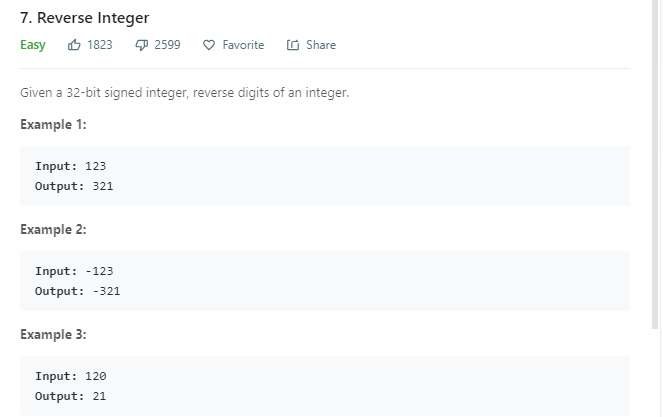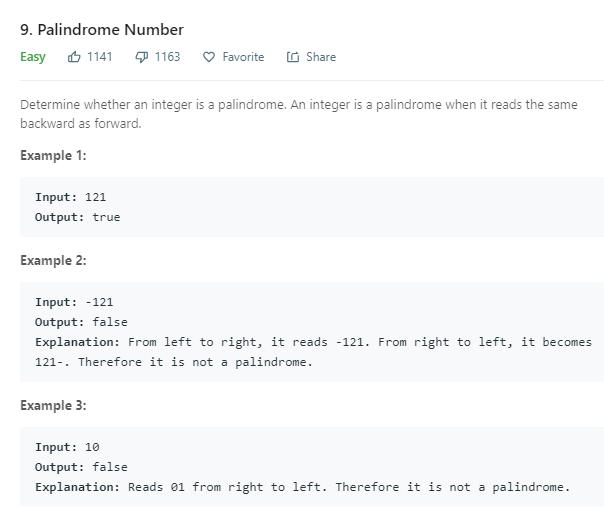这次的三道题都不是很难,属于那种一眼就能看出思路,只是方法是否最优的问题。说实话,这三道题更应该用C/C++来做,因为考察的都是字符串的基本功。不过我很久没用C系语言了,一时半会实在搞不定这个指针。大python嘛,无脑过就行了。所以这次我更侧重python如何用更少的代码量,更简洁的方式解决这些问题。当然,虽然python很好用,但用的时候一定要搞清楚它的性能瓶颈,这样子遇到问题才知道怎么解决,就比如第八题我所用的正则。
leetcode 007


代码实现
这道题要是用C/C++,最佳做法不是用指针一个个读,而是利用十位制的一些性质。用python就很无脑了。
class Solution:
def reverse(self, x):
"""
:type x: int
:rtype: int
"""
s = str(abs(x))[::-1]
result = int(s) if x > 0 else -int(s)
if result < -2**31 or result >= 2**31:
result = 0
return result
说实话,因为python语言设定的一些问题,这道题要用C的那种做法相当麻烦。正是因为这样,我深刻理解了,一门语言就该干它擅长的活,python就应该写得飘起来,而不是像C一样斤斤计较。
class Solution:
def reverse(self, x):
"""
:type x: int
:rtype: int
"""
maxint = 2**31
rev = 0
while x:
if x > 0:
x, pop = x // 10, x % 10
else:
x, pop = -(abs(x)//10) , -(abs(x) % 10)
if rev > maxint // 10 or (rev == maxint // 10 and pop > 7):
return 0
if rev < -(maxint // 10) or (rev == -(maxint // 10) and pop < -8):
return 0
rev = rev * 10 + pop
return rev
leetcode 008


代码实现
这道题要是中规中矩按照题目原设定的做法去做,要卡好几次边界。对于这类匹配问题,我一下子就想到了正则匹配。这道题用正则匹配就很无脑了。
class Solution:
def myAtoi(self, str):
"""
:type str: str
:rtype: int
"""
import re
try:
str = str.strip()
pos = re.match(r'^([-+]?)(d)+', str).span()
ret = int(str[pos[0]:pos[1]])
if ret >= 2**31:
return 2**31-1
elif ret < -2**31:
return -2**31
return ret
except:
return 0
但是正则匹配有一个严重的问题,那就是写匹配时要慎用贪婪匹配!不然会产生严重的性能问题,不过在这道题上还好,性能降得不是特别厉害。
leetcode 009


代码实现
属于回文串问题。代码 x = ' '.join(list(str(x))) 是在每两个字符插入空格,在本题中多余,但用来处理大多数回文串问题都非常高效。
class Solution:
def isPalindrome(self, x):
"""
:type x: int
:rtype: bool
"""
x = ' '.join(list(str(x)))
rev_x = x[::-1]
if x == rev_x:
return True
else:
return False